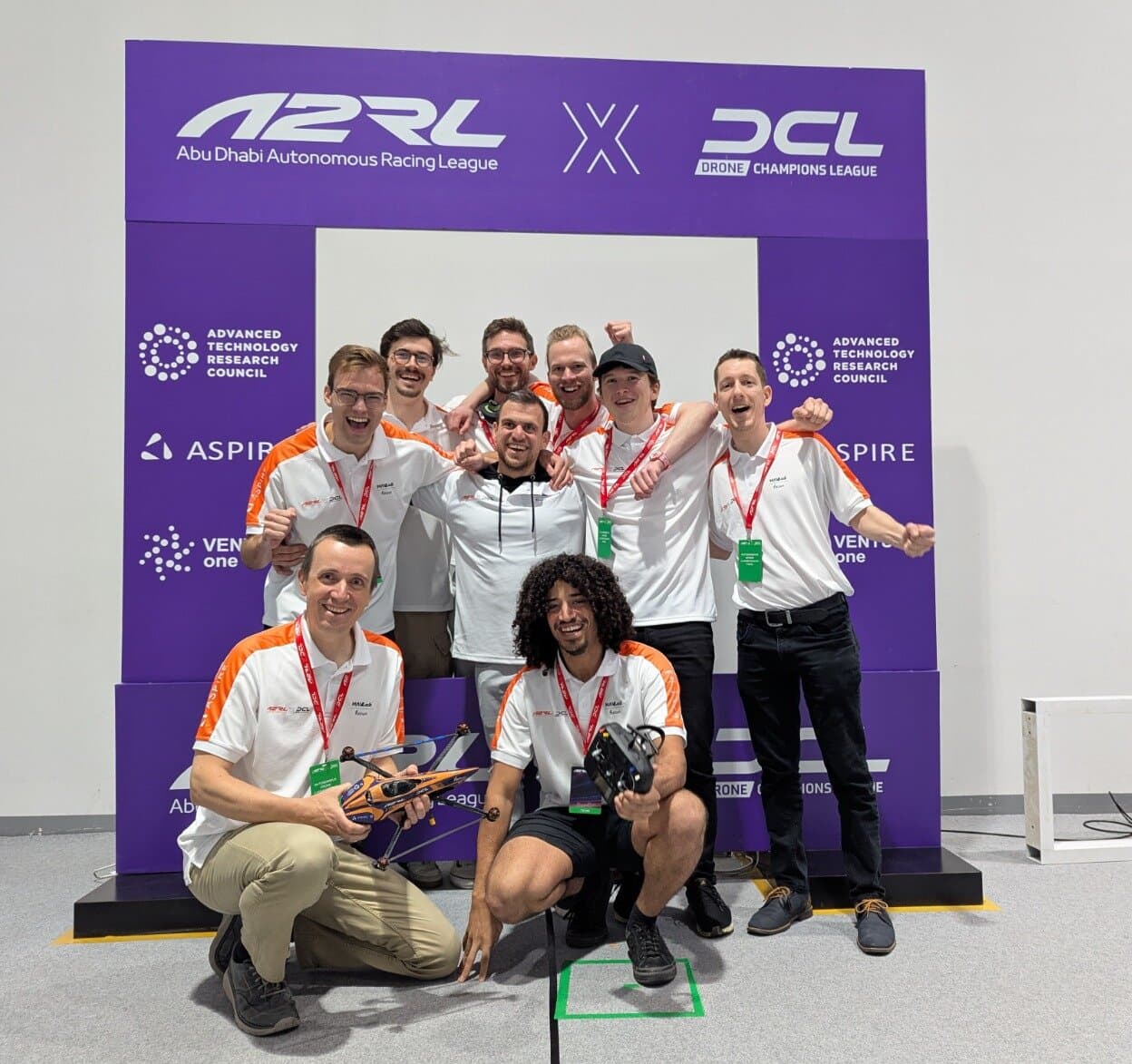Delft drone triumphs in AI-driven racing, outpacing human pilots
An AI-powered drone developed by the Delft University of Technology claimed a historic victory, outpacing human pilots
Published on April 18, 2025

© TU Delft
Mauro swapped Sardinia for Eindhoven and has been an IO+ editor for 3 years. As a GREEN+ expert, he covers the energy transition with data-driven stories.
An autonomous drone developed by Delft University of Technology (TU Delft) MAVLab claimed a historic victory at the A2RL Drone Championship in Abu Dhabi. This remarkable feat signifies the first time a drone has outperformed human pilots in an international competition. The drone, using only a single forward-looking camera, achieved speeds up to 95.8 km/h, surpassing three former Drone Champions League winners. The breakthrough was powered by a deep neural network that communicates directly with the drone's motors, a system initially conceptualized by the European Space Agency.
The critical component of this success is the deep neural network, a significant advancement over traditional algorithms, designed to efficiently process and translate sensory inputs directly into motor commands. This innovative technology, partially inspired by the European Space Agency's Guidance and Control Nets, allows for drastic reductions in computational demands, paving the way for smarter and faster autonomous systems.
Led by Christophe De Wagter, the MAVLab team at TU Delft's Faculty of Aerospace Engineering crafted the drone's AI. Team members, including Anton Lang, Quentin Missine, and Erin Lucassen, among others, contributed to this groundbreaking achievement.
Implications for broader applications
The approach harnessed by the TU Delft AI not only marks a milestone in racing but also hints at robust future applications across various fields. From enhancing the efficiency of vacuum cleaners to advancing autonomous vehicle technology, the lessons learned from this competition are poised to influence a range of robotic applications. These advancements underscore the potential for drones to support critical functions such as emergency deliveries of medical supplies and search operations during disasters.
Beyond the glamor of victory, this achievement serves as a stepping stone towards more intuitive and capable AI technologies. De Wagter envisions such innovations as test cases fueling practical robotic solutions, highlighting that "autonomous racing with drones is an ideal test case for developing and demonstrating highly efficient, robust AI." The success of TU Delft’s drone sets a precedent for future explorations into integrating deep learning mechanisms within various technological frameworks.
